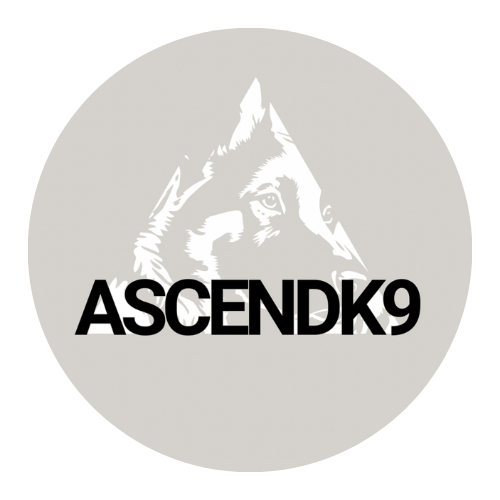Puppy Socialisation: How to Train and Socialise Your Puppy for Lifelong Confidence
One of the most common questions new dog owners ask is:
"How do I socialise my puppy?"
Puppy socialisation is one of the most important parts of early puppy training - yet it’s also one of the most misunderstood. Many people assume a “well-socialised” puppy is the one who rushes up to greet every dog and every person. But in reality, the goal is quite different.
A truly well-socialised dog remains calm, neutral, and confident in any environment, not overexcited, not fearful, and not desperate for attention.
What Does a Well-Socialised Puppy Look Like?
A properly socialised puppy:
Accepts handling from different people without fear or resistance.
Maintains focus on their owner in distracting situations.
Adapts well to new environments, sounds, and smells.
Tolerates the presence of other dogs and people without pulling or lunging.
Waits for cues before approaching dogs, people, or objects.
Communicates clearly through appropriate body language.
Shows curiosity rather than suspicion in new situations.
The Kennel Club Puppy Socialisation Guide
offers more insight into how early experiences shape your dog’s confidence.
The Right Approach
The two golden rules are exposure and engagement.
Your puppy should experience new things in a positive, controlled way, while learning to stay engaged with you as their owner.
Key Puppy Socialisation Strategies:
Gradual Exposure to New Environments
Introduce your puppy to parks, busy streets, vet clinics, and quieter areas first.
Vary sights, sounds, and smells in a way that’s not overwhelming.
Puppy Classes with a Focus on Neutrality
Choose puppy training classes where the trainer encourages calm, neutral behaviour instead of uncontrolled play.
At ASCENDK9 Group Obedience Classes, we combine structured training with controlled socialisation.
Meet a Variety of People
Expose your puppy to men, women, children, and people in uniforms, hats, high-vis clothing, or helmets.
Use Positive Reinforcement
Pair new experiences with food rewards to create positive associations.
The PDSA Puppy Socialisation Advice explains why reward-based methods are essential.
Incorporate Socialisation into Daily Walks
Use walks to practise neutrality - reward your puppy for calmly ignoring dogs, people, and distractions.
Encourage Safe Exploration
Let your puppy investigate new objects and surfaces at their own pace.
Monitor Body Language
Learn to recognise stress signals (e.g., pinned ears, looking away, raised hackles) and adjust situations accordingly.
The RSPCA Body Language Guide is a great visual resource.
What to Avoid in Puppy Socialisation
Overcrowded Dog Parks - Too many uncontrolled dogs can cause fear or bad habits.
Random Interactions with Unknown Dogs - Not all dogs have good manners, which can set your puppy back.
Overwhelming Environments Too Soon - Gradual exposure is key.
Ignoring Body Language - Always respect your puppy’s comfort level.
FAQ’s - Puppy Socialisation and Training
Q: When should I start puppy socialisation?
A: As soon as your puppy has settled in at home and your vet confirms it’s safe, begin controlled exposure. The critical socialisation window is between 8-16 weeks.
Q: Can I still socialise my puppy after this period?
A: Yes - but early, positive exposure makes the process faster and easier.
Q: How do I train my puppy alongside socialisation?
A: Pair all socialisation experiences with training cues like sit, down, or loose-lead walking so your puppy learns to respond to you no matter the distraction.
Why We Don’t Offer Puppy-Only Classes
At ASCENDK9, we don’t run traditional puppy-only classes - and that’s a very intentional choice.
While many owners assume puppy classes are the best way to start socialisation and training, in reality, they often create environments full of excitable, inexperienced young dogs feeding off each other’s energy. This can lead to:
Overexcitement and poor impulse control.
A focus on playing with other puppies rather than learning from their owner.
Difficulty transitioning to calm, neutral behaviour around adult dogs later in life.
Instead, our mixed-age obedience classes bring together well-trained adult dogs and younger dogs in a controlled, structured setting. This approach gives puppies exposure to calm, balanced role models while still getting the socialisation they need… without the chaos of a room full of equally excitable puppies!
In our Harlow, Sawbridgeworth, Bishops Stortford, Hertford, and Epping classes, you can expect:
Structured obedience training for all life stages, from beginner to advanced.
Controlled exposure to new environments, distractions, and other dogs.
Real-life neutrality training, teaching your puppy to stay calm around dogs of all ages.
Expert guidance on reading body language, building engagement, and setting your dog up for success in any situation.
This mixed-age approach not only improves training results but also creates confident, adaptable dogs who can handle the real world - not just a puppy playgroup!
Need Help Socialising Your Puppy?
If you’re unsure how to train your puppy and introduce them to the world in a safe, positive way, we can help.
Book a Virtual Puppy Training Session for tailored advice.
Find out more about our Urban Obedience or Group Obedience Classes in Essex & Hertfordshire.
Start early, go slow, and make every experience positive - and you’ll have a confident, adaptable dog for life!





